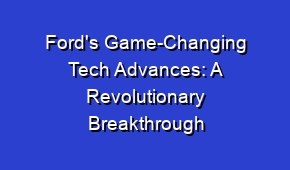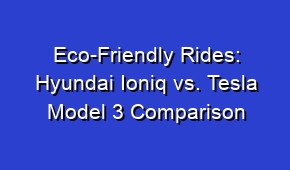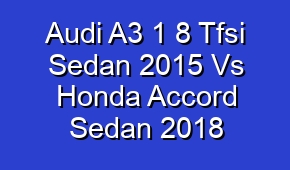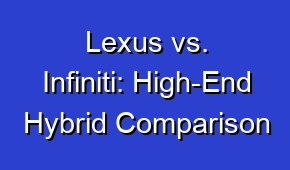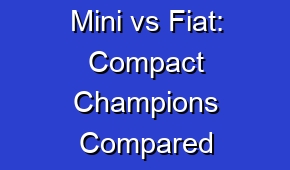Car Leasing

Car leasing allows individuals to drive a vehicle without the commitment of ownership. Instead, they pay a monthly fee to use the car for a specified period.
Car Leasing is a popular alternative to buying a car outright, offering flexibility and cost savings. When considering car leasing, it’s important to understand the terms and conditions associated with the agreement. Car leasing allows you to drive a new car without the long-term commitment of ownership. Monthly payments are often lower compared to financing a car purchase. However, it’s crucial to carefully review the mileage limits, excess wear and tear charges, and early termination fees. It’s also essential to compare leasing offers from different dealerships to find the best deal. Car leasing can be a smart choice for individuals who prefer to drive the latest models without the hassle of selling or trading in their old vehicle.
| Car leasing is a popular alternative to buying a vehicle. |
| Leasing allows you to drive a new car without the long-term commitment. |
| Monthly lease payments are often lower than loan payments. |
| Leasing provides flexibility to switch to a different vehicle every few years. |
| Most leases have mileage restrictions that you need to be aware of. |
- Car leasing is a great option for those who prefer short-term vehicle use.
- Leasing can be a good choice if you want to drive a luxury car without the high price tag.
- Depreciation costs are not a concern when you lease a car.
- Leasing allows you to stay up-to-date with the latest vehicle technology.
- Lease-end options give you flexibility to buy the car or return it.
What is car leasing and how does it work?
Car leasing is a process where you can use a vehicle for a fixed period of time by making monthly payments to the leasing company. Instead of buying the car, you essentially rent it for a specific duration. Leasing typically involves an agreement between the lessee (the person leasing the car) and the lessor (the leasing company).
During the leasing period, you are responsible for maintaining the car and paying for insurance and any applicable taxes. At the end of the lease term, you return the vehicle to the lessor, unless you choose to purchase it. The monthly lease payments are typically lower than if you were to finance the purchase of a new car.
What are the advantages of car leasing?
Car leasing offers several advantages, including lower monthly payments compared to buying a new car. It allows you to drive a newer vehicle with the latest features without the long-term commitment of ownership. Leasing also provides the opportunity to easily upgrade to a new car every few years, avoiding the hassle of selling or trading in a used vehicle.
Additionally, car leasing may offer tax benefits for business purposes, as lease payments can often be deducted as a business expense. It also eliminates the risk of depreciation, as you are not responsible for the car’s resale value.
What are the disadvantages of car leasing?
While car leasing has its advantages, there are also some disadvantages to consider. You do not own the vehicle, so you have no equity or asset value at the end of the lease. You are also subject to mileage restrictions, and exceeding the agreed-upon mileage limit can result in additional fees.
Leasing contracts may include wear and tear guidelines, and any damage beyond normal use may incur charges. Terminating a lease early can be costly, and you may have to pay penalties or fees. It is important to carefully review the lease terms and conditions before entering into an agreement.
What factors should I consider when leasing a car?
When considering car leasing, it is important to evaluate several factors. First, determine your budget and ensure that the monthly lease payments fit within your financial means. Consider the length of the lease term and whether it aligns with your desired timeframe for driving the vehicle.
Research the residual value of the car, as this will impact the monthly payments. Additionally, understand the mileage restrictions and any penalties for exceeding them. Evaluate the leasing company’s reputation and customer reviews to ensure you are working with a reputable provider.
Can I negotiate the terms of a car lease?
Yes, it is possible to negotiate the terms of a car lease. Although leasing terms are often predetermined, there may be some flexibility in certain aspects. You can negotiate the purchase price of the vehicle, the lease duration, the mileage limit, and potentially even the monthly payments.
It is important to research and gather information about the car’s value, current lease promotions, and incentives. This will allow you to be better informed when negotiating with the leasing company. Be prepared to negotiate and understand that not all terms may be negotiable.
What happens at the end of a car lease?
At the end of a car lease, you have a few options. You can return the vehicle to the lessor and walk away, as long as you have fulfilled all the lease obligations. Alternatively, you can choose to purchase the vehicle at the predetermined residual value.
If you decide to return the car, the lessor will inspect it for any excess wear and tear or mileage overages. You may be responsible for any charges related to damages or excessive use. It is important to review the lease agreement to understand the end-of-lease process.
Can I lease a used car instead of a new car?
Yes, it is possible to lease a used car. Some dealerships and leasing companies offer used car leasing options. Leasing a used car can provide cost savings compared to leasing a brand new vehicle. However, the availability and terms of used car leases may vary.
When considering a used car lease, inspect the vehicle thoroughly and ensure it meets your requirements. Understand the lease terms, including the length of the lease and any limitations or restrictions. Determine if the lease includes any warranties or maintenance agreements.
What is a lease buyout and how does it work?
A lease buyout is an option to purchase the leased vehicle at the end of the lease term. There are typically two types of lease buyouts: a predetermined purchase price or a market value buyout. A predetermined purchase price is agreed upon at the beginning of the lease, while a market value buyout is determined based on the vehicle’s current market value.
If you choose to exercise a lease buyout, you will need to contact the lessor and express your interest. The lessor will provide the necessary paperwork and guide you through the purchase process. It is important to carefully evaluate the cost and condition of the vehicle before deciding on a lease buyout.
Can I lease a car with bad credit?
It is possible to lease a car with bad credit, although it may be more challenging. Lenders and leasing companies typically consider credit scores when approving lease applications. A lower credit score may result in higher interest rates or stricter lease terms.
However, there are leasing companies that specialize in working with individuals with bad credit. They may require a larger down payment or additional documentation to secure the lease. It is advisable to shop around and compare options before committing to a lease agreement.
What happens if I exceed the mileage limit on a leased car?
If you exceed the mileage limit on a leased car, you may be subject to additional fees or penalties. The lease agreement specifies the agreed-upon mileage limit, which is typically stated as an annual mileage allowance.
Exceeding the mileage limit can result in charges per mile over the agreed-upon limit. These charges can add up, so it is important to monitor your mileage and consider purchasing additional mileage upfront if you anticipate exceeding the limit.
Can I modify or customize a leased car?
Modifying or customizing a leased car is generally not recommended. Most lease agreements prohibit any alterations to the vehicle without prior written consent from the lessor.
Modifications or customizations can affect the value of the car and may result in additional charges or penalties at the end of the lease term. If you have specific customization needs, it is best to discuss them with the leasing company before signing the lease agreement.
Are there any tax benefits to leasing a car?
There may be tax benefits to leasing a car, especially for business purposes. In some cases, lease payments can be deducted as a business expense, reducing the taxable income.
It is important to consult with a tax professional or accountant to understand the specific tax implications of leasing a car. Tax laws and regulations vary, and individual circumstances may impact the eligibility for tax deductions.
What is a lease disposition fee and when is it charged?
A lease disposition fee is a charge imposed by the lessor when you return the leased vehicle at the end of the lease term. This fee covers the costs associated with inspecting and preparing the car for resale.
The lease disposition fee is typically mentioned in the lease agreement, and the amount can vary depending on the leasing company. It is important to review the lease terms to understand if a disposition fee will be charged and the specific amount.
Can I transfer my car lease to someone else?
Yes, it is possible to transfer your car lease to someone else. This is known as a lease transfer or lease assumption. The process involves finding a qualified individual who is willing to take over the lease and meet the leasing company’s requirements.
The leasing company will typically charge a transfer fee, and the new lessee will assume all responsibilities and obligations outlined in the original lease agreement. It is important to consult with the leasing company to understand the specific process and requirements for transferring a car lease.
Can I lease a car if I am self-employed or a freelancer?
Yes, self-employed individuals or freelancers can lease a car. However, the leasing process may require additional documentation to verify income and financial stability.
Leasing companies may request bank statements, tax returns, or other proof of income to assess the ability to make lease payments. It is advisable to consult with the leasing company and gather the necessary documents before initiating the lease application.
What happens if I want to end my car lease early?
Ending a car lease early can be costly. Terminating a lease before the agreed-upon term generally results in penalties or fees.
The lease agreement may outline the specific early termination charges, which can include remaining lease payments, fees for breaching the contract, and potential depreciation costs. It is important to carefully review the lease terms and consider the financial implications before deciding to end a car lease early.
What is the difference between leasing and financing a car?
The main difference between leasing and financing a car is ownership. When you lease a car, you do not own it. Instead, you are essentially renting it for a specific period of time.
Financing a car, on the other hand, involves taking out a loan to purchase the vehicle. With financing, you become the owner of the car and make monthly payments towards owning it outright. Leasing typically offers lower monthly payments compared to financing, but you do not build equity in the vehicle.
Can I negotiate the purchase price of a leased car at the end of the lease?
Yes, you can negotiate the purchase price of a leased car at the end of the lease term. This is known as a lease buyout negotiation.
When negotiating the purchase price, consider factors such as the car’s current market value, its condition, and any additional fees or charges. Research similar vehicles for sale to determine a fair price. Be prepared to negotiate with the lessor to reach an agreement on the purchase price.








